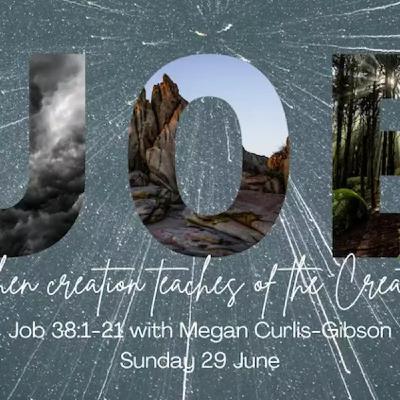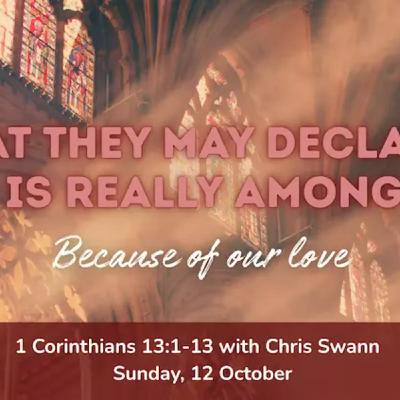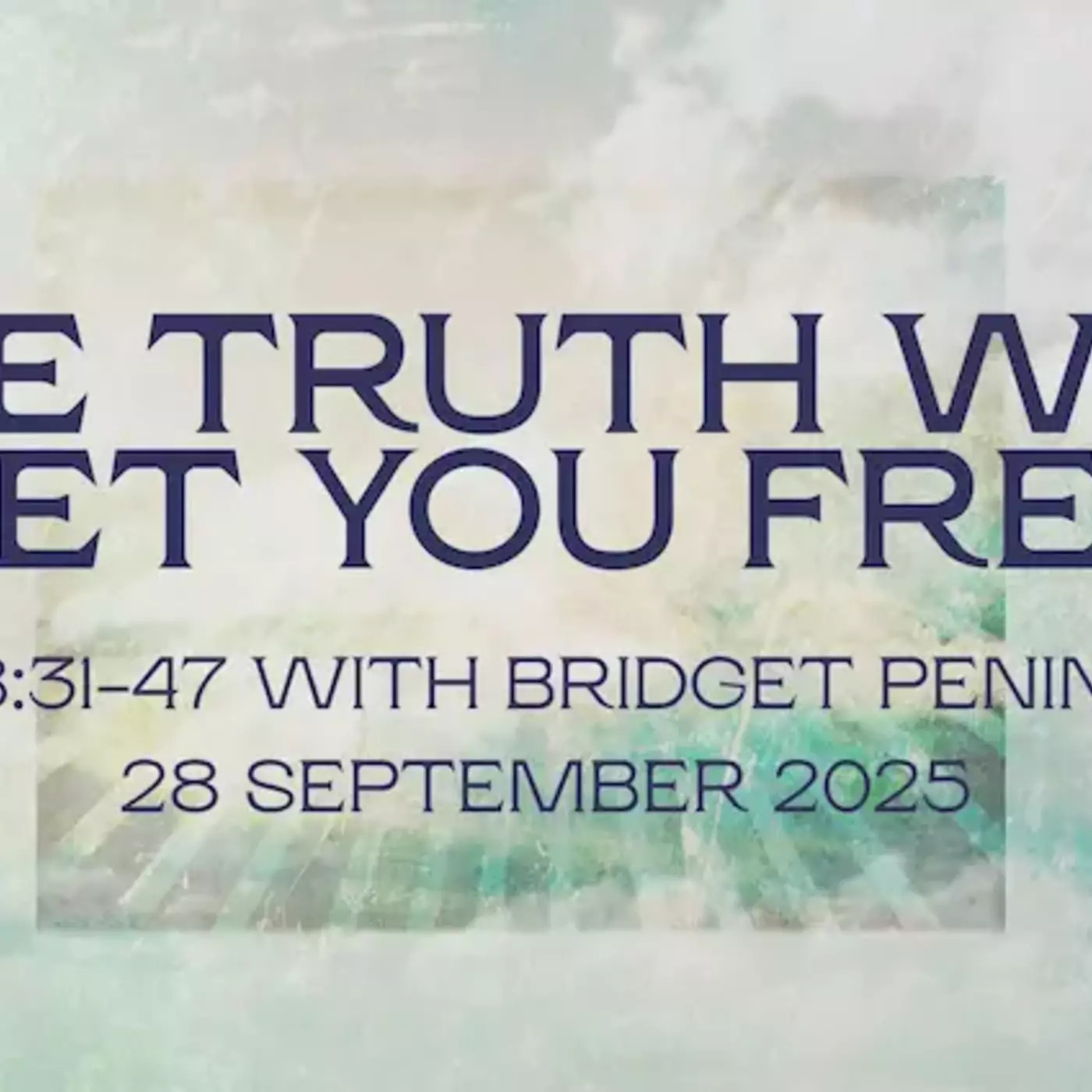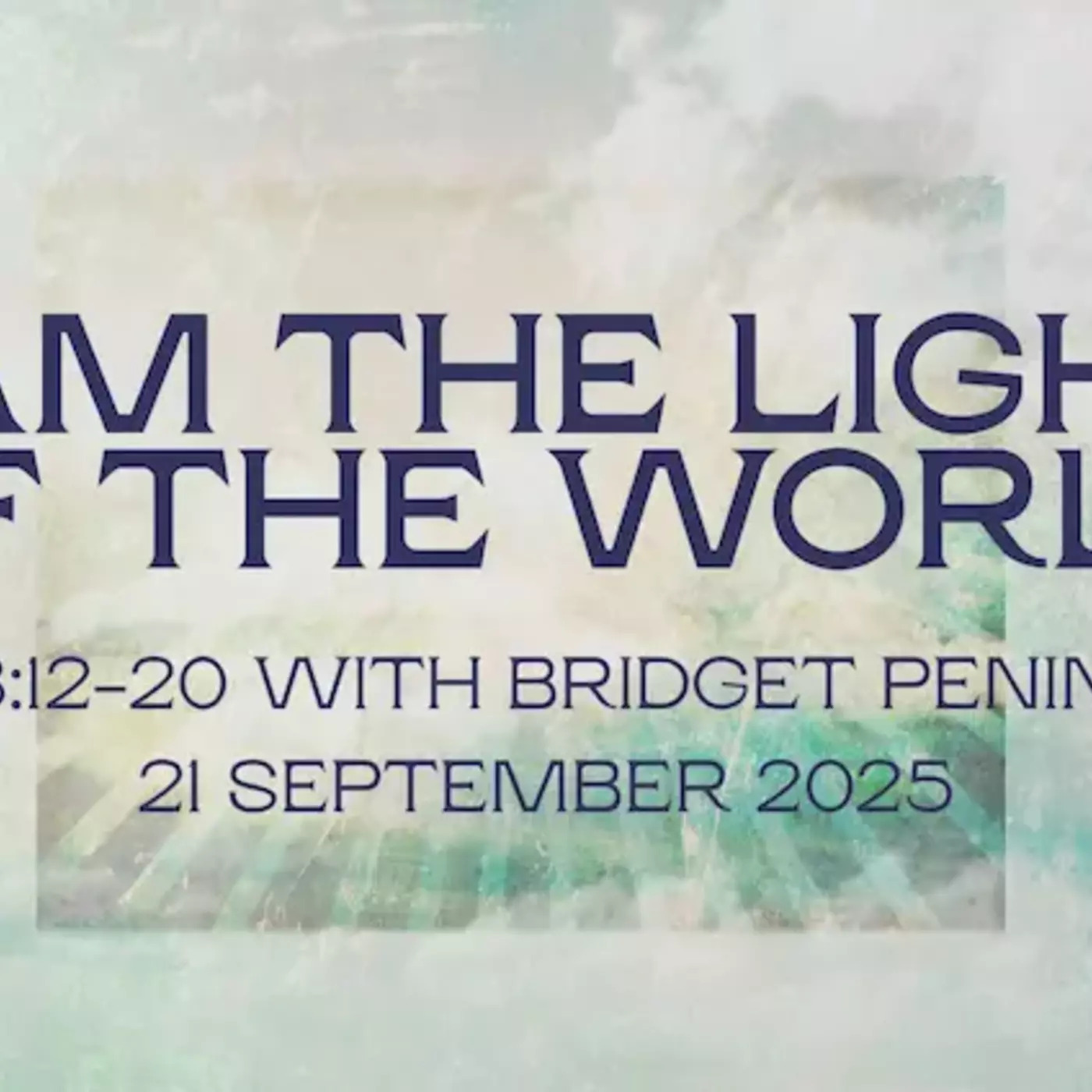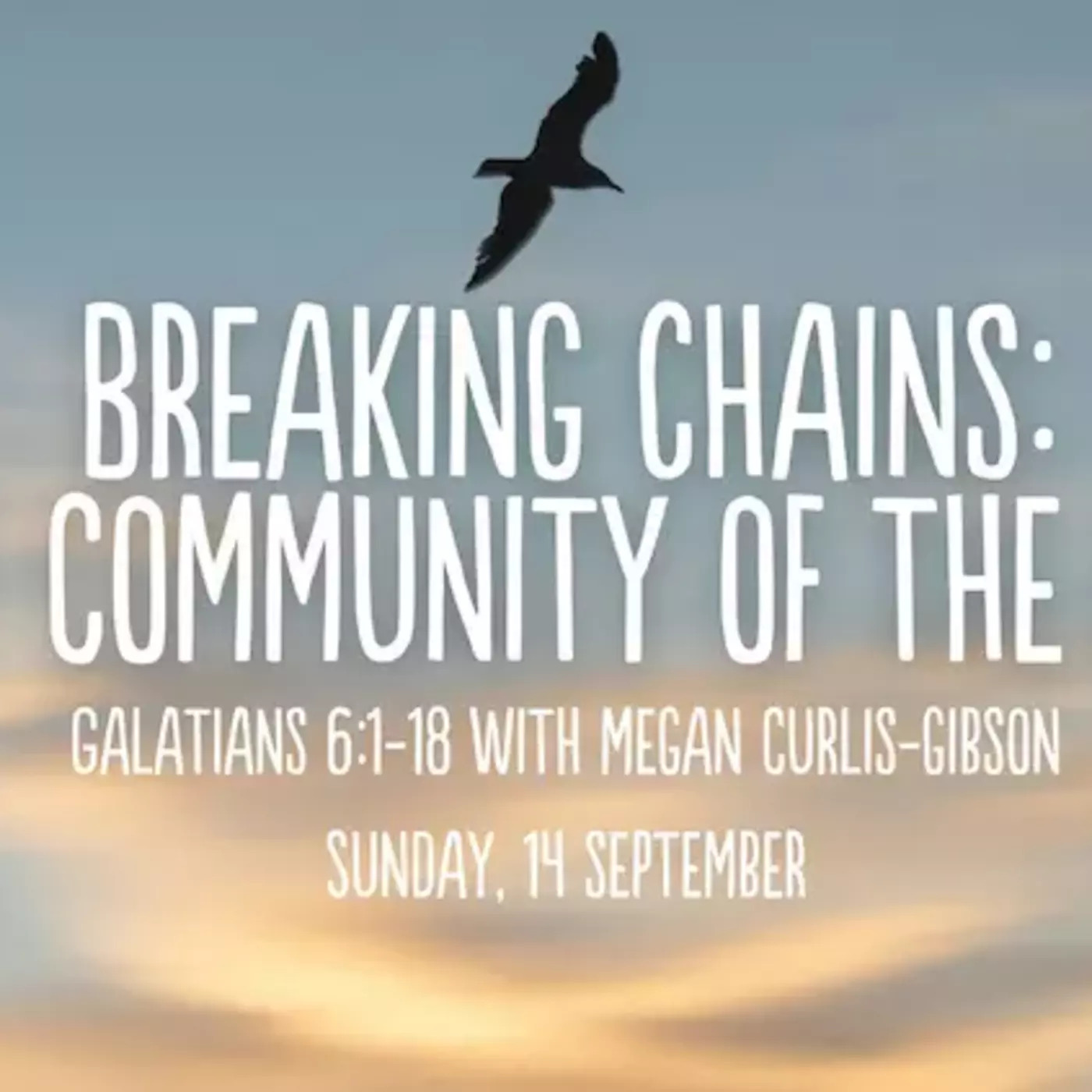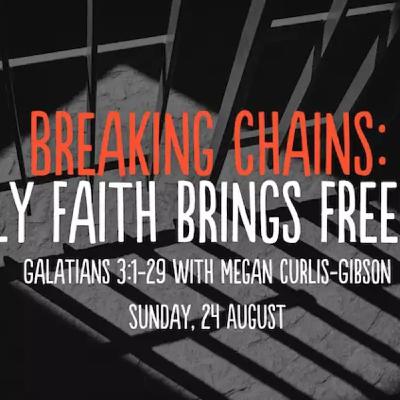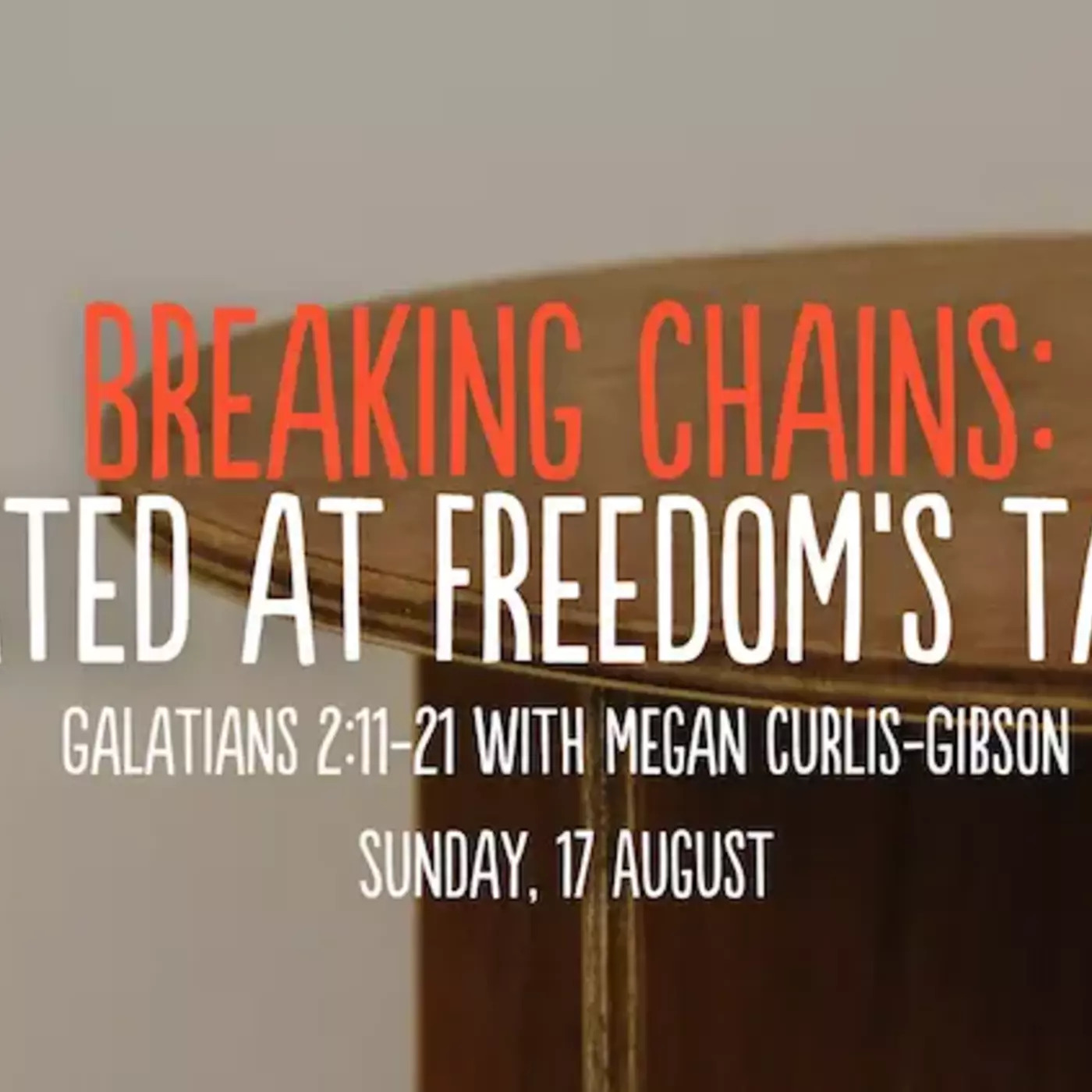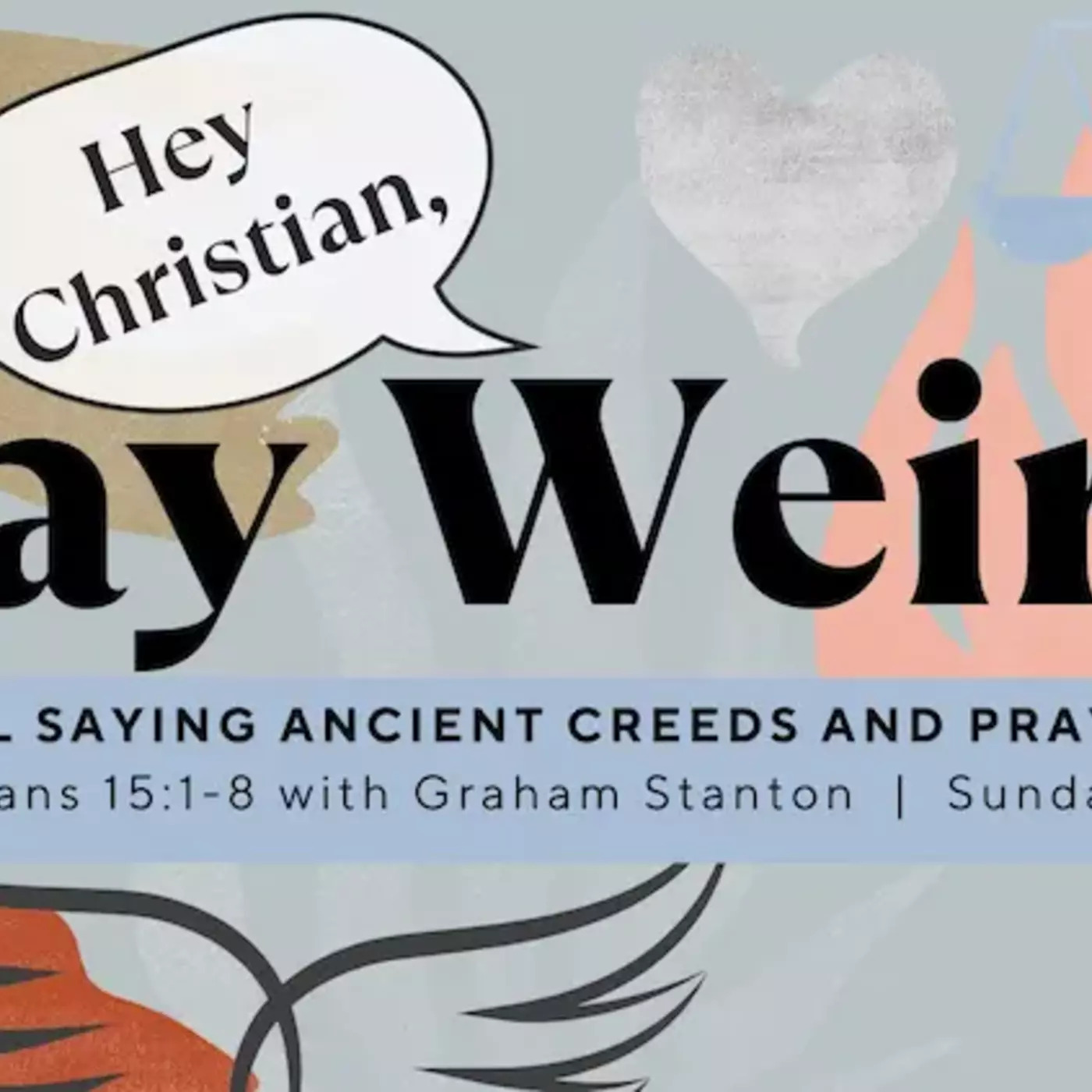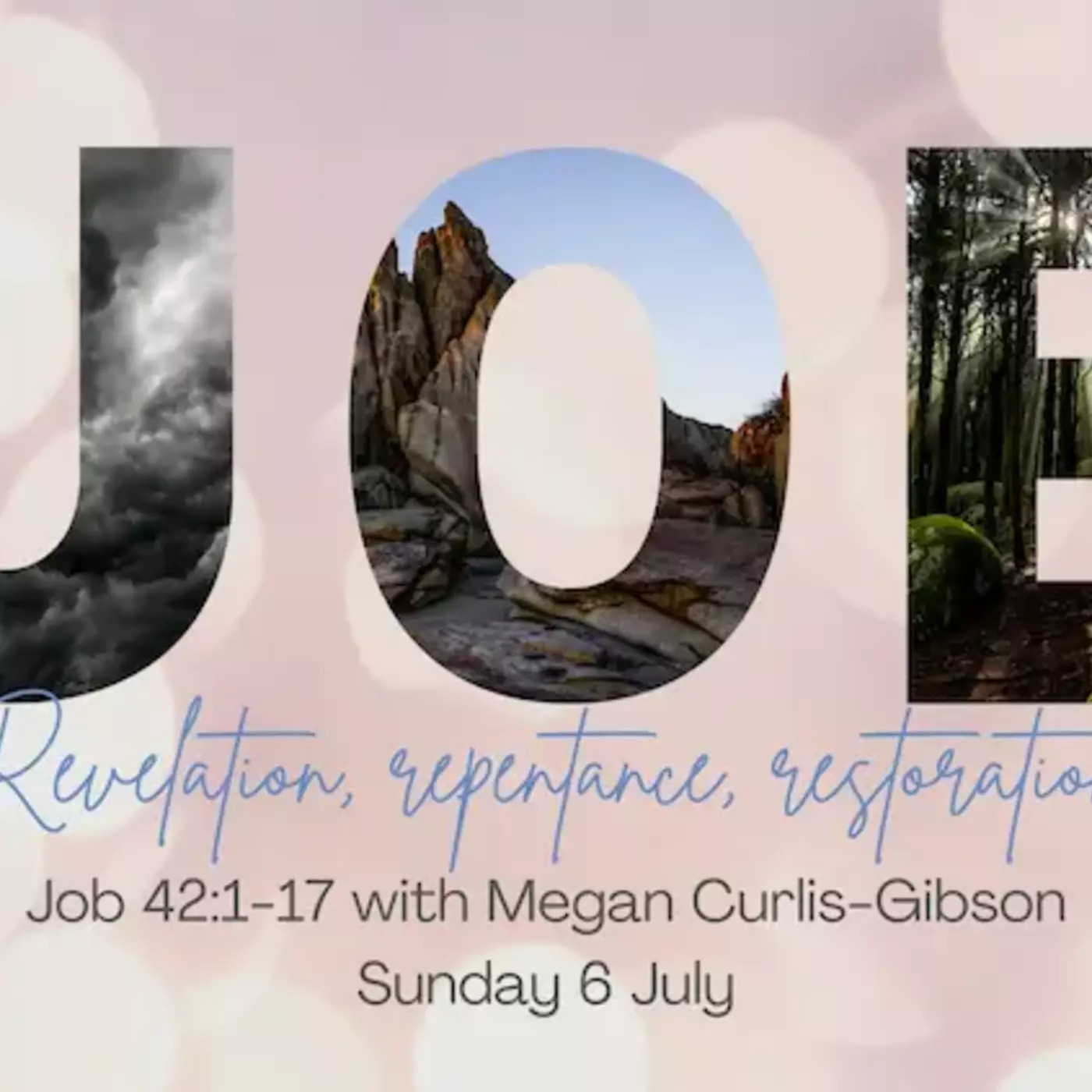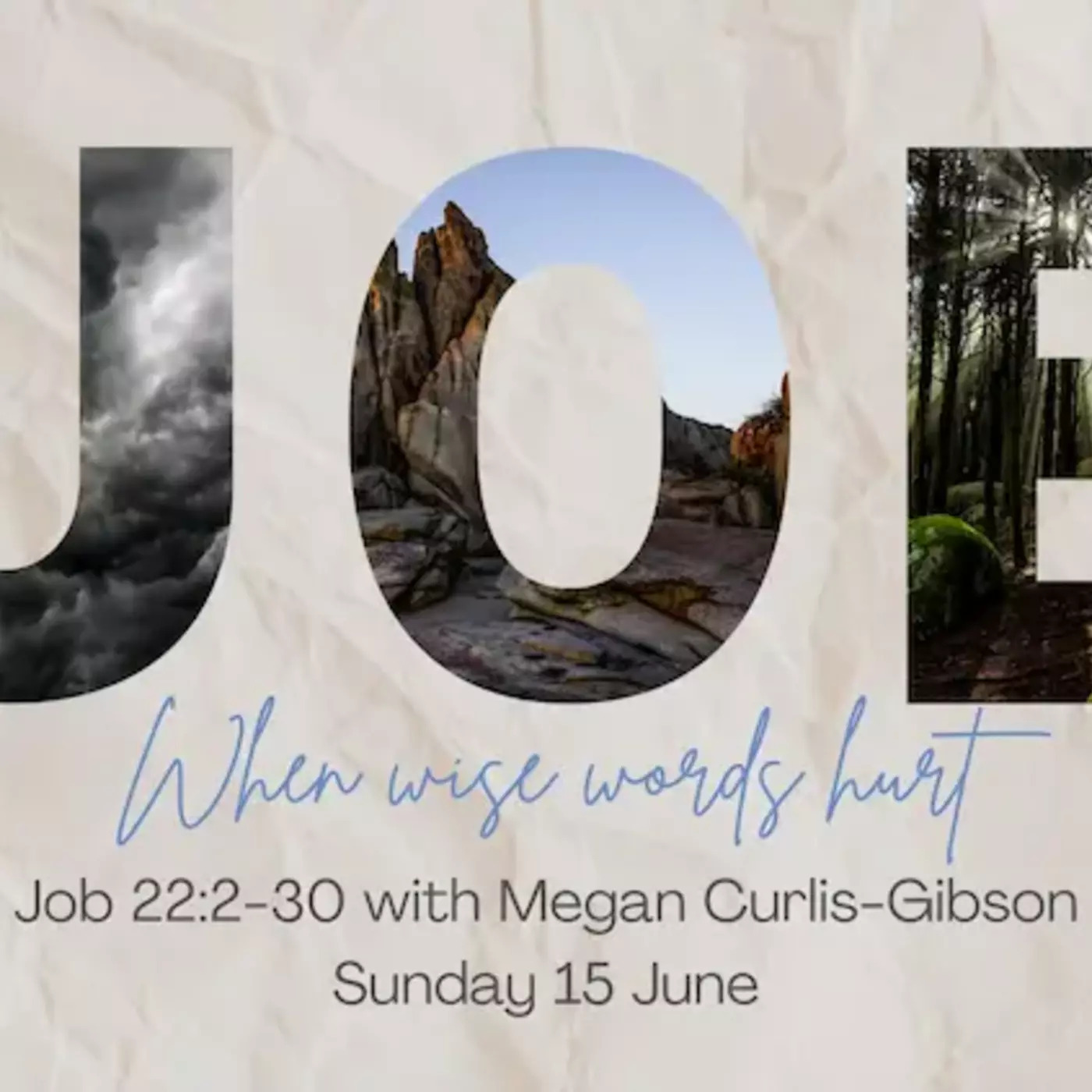When Creation Teaches of the Creator
Update: 2025-06-28
Description
When Job demands answers from God, hes met not with explanations, but with awe. In this powerful sermon, we explore how God responds from the storm, lifting Jobs eyes from suffering to the wonder, wisdom, and wildness of creation. Discover how Gods care is both cosmic and personal, and why we are never alone, even in the chaos.
To catch up on the latest sermons from Deep Creek, go to iTunes, Spotify ordeepcreekanglican.comand check out the website for more info about whats happening.
We are a welcoming and growing multigenerational church in Doncaster East in Melbourne with refreshing faith in Jesus Christ. We think that looks like being life-giving to the believer, surprising to the world, and strengthening to the weary and doubting.
Read the transcript
The word of the Lord is being read from the Book of Job, Chapter 38, verses 1 to 21.
Then the Lord spoke to Job out of the storm. He said,Who is this that obscures my plans with words without knowledge?Brace yourself like a man; I will question you, and you shall answer me.Where were you when I laid the earth's foundation? Tell me, if you understand.Who marked off its dimensions? Surely you know. Who stretched a measuring line across it?On what were its footings set, or who laid its cornerstonewhile the morning stars sang together and all the angels shouted for joy?Who shut up the sea behind doors when it burst forth from the womb,when I made the clouds its garment and wrapped it in thick darkness;when I fixed limits for it and set its doors and bars in place,when I said, This far you may come and no farther; here is where your proud waves halt?Have you ever given orders to the morning or shown the dawn its place,that it might take the earth by the edges and shake the wicked out of it?The earth takes shape like clay under a seal; its features stand out like those of a garment.The wicked are denied their light, and their upraised arm is broken.Have you journeyed to the springs of the sea or walked in the recesses of the deep?Have the gates of death been shown to you? Have you seen the gates of the deepest darkness?Have you comprehended the vast expanses of the earth? Tell me, if you know all this.What is the way to the abode of light? And where does darkness reside?Can you take them to their places? Do you know the paths to their dwellings?Surely you know, for you were already born! You have lived so many years.
Good morning everyone.
We could probably have some light, I think. It might help you. I don't know if it'll make you go to sleep or not, but anyway.
We are looking at, actually, four chapters in Job today, although we just had the start read. If you've got a Bible or something on your phone, you're welcome to follow along. But a lot of the material I'll have up on the screen or read out for us.
Let's pray. Lord, we thank you for the richness of your word. And we thank you, Lord, that your kindness to us is in revealing who you are, who we are, and our place in this creation.
We thank you, Lord, for your goodness to us this morning and every day, in providing all that we need for life and showing us the way to salvation through Your Son, Jesus Christ. We pray that you'd open our hearts today to all that you would say to us in Your Word by Your Holy Spirit. Amen.
Left on Read with God
Well, the young people have an expression: to be left on read. It means that you've sent a message to someone and they have clearly seen it.
A read receipt has come through. It says delivered and read in whatever, you know, WhatsApp or Messenger or whatever. But they have not responded.
So it's not like, you know, they haven't seen the message. Oh, they've seen it. But something about their life your message, your priority in their life means that you've been left on read.
Well, at this point in the book of Job, Job is feeling like he is left on read with God. We've had speeches back and forth. We've had lots of human words. But in all the chapters between chapter 3 and 37, we've not had a word from God.
Job has been crying out to God because of his suffering. All that he has lost, the changes in his life. Everything good that he had seems to have been taken away.
And he believes that God is in charge of the world, and so he cannot understand the justice behind a righteous man such as himself receiving such terrible treatment at the hands of a good God. He had done good. Why had he not experienced good in his life?
And he knew that he did not deserve this suffering, this change in his fortunes. So why was God doing it?
He cries out to God. In fact, more than just sending God a message, he's actually longing to take God to court, if you like.
He's kind of moving from just messages between friends to an episode of Law and Order. He is in the courtroom and he is crying out for God the defendant and the judge to answer him.
So you actually see lots of courtroom imagery throughout the whole book of Job. We see at the beginning God, the heavenly Judge on the throne, and the angels coming before Him. The accuser comes and says, What is the justice in this man's life? You are saying he is worshiping you and being righteous, and yet he has so much. It's unjust. He doesn't really love you for you; it's because of all the stuff he's got.
And so the whole scenario of Job's change in life and his suffering is set up in this sort of courtroom assembly. But Job himself then starts to style himself as a plaintiff in a court case, calling out to God to take his case and also to answer him as his opposition.
He longs for there to be someone a witness, an arbiter, a mediator in the courtroom between him and God. And actually, when he calls for a Redeemer and says, I know there must be someone, he's still using this picture. I want someone to stand on my side, to be my legal advocate. To provide what I need. As I stand before God the Judge.
God Speaks from the Storm
So when we come to God speaking in chapter 38, we actually see God begin His own cross-examination of Job. God speaks. And yes, He will engage in this courtroom scene and these questions of justice.
Now, what He says in answer to Job's complaints may be very unexpected. But when we see the beginning of chapter 38, we can imagine exactly a defense attorney standing there saying, Brace yourself. Are you ready for my questions?
So God answers Job. In our NIV translation, we just have, Then the Lord spoke to Job. That's appropriate. I'm not a Hebrew scholar, but what I do know is that there's a difference between the way that God speaks here and the way God has spoken the only other times we've seen Him speak (in chapters 1 and 2).
In chapters 1 and 2, God speaks to the Satan the accuser, the adversary and He does not... (the Hebrew doesn't use the normal everyday sort of reply form of the word). It's not like this is a dialogue between God and Satan. Satan says something and God speaks, but He doesn't "reply" in the sense that they are equals.
Here, however, the language is back to normal. God answers Job, as you and I would answer or reply to one another in conversation. He has now brought Himself into dialogue with Job. Not that either one's character or essence has changed, but that God is willing to have a conversation with this human being. Face to face.
But it's not really face to face. It's not equal. God speaks to Job out of the storm. Throughout the book of Job, Job has been using this imagery of God Himself.
You might have heard that we are expecting a "weather bomb" off the east coast of Australia this coming week. And you think to yourself, Ah, do you need to just really escalate this imagery? It'll probably be quite rainy and windy.
However, the picture of God speaking out of the storm is that escalated "weather bomb" language. This is power. This is threat.
And Job knows this about God, because Job has used this language of Him before. In that first courtroom scene in chapter 9, when he's saying, You're the Judge I want to bring my case before You. But I feel so powerless. If He does come to me, He would crush me with a storm and multiply my wounds for no reason.
And then, towards the end of the speeches, just before the final human arbiter (Elihu) speaks, Job says to God, You snatch me up and drive me before the wind; You toss me about in the storm.
Elihu, in his speeches (before God finally speaks in answer), says this too about God: His thunder announces the coming storm.
All the threat that you experience when a weather bomb is on its way... This is the power and holiness and otherness of the great God of the universe.
But God, out of His great power and otherness, does not destroy Job when He speaks to him out of the storm. He says, Who is this that obscures My plans with words without knowledge? Brace yourself like a man. Like a warrior. I will question you, and you shall answer Me.
And so we wonder, what will God say in response to Job's suffering and his request for justice? Will He go into the explanation of Satan coming before God in chapters 1 and 2? Will He say, Actually, you werent as righteous as you thought. Everybody gets tough times? What is He going to say?
The Vastness of Creation
Well, God begins His answer to Job by lifting his eyes to the vastness of creation. He lifts Jobs eyes above Jobs own human story, and He tells Job just how vast and indescribable how unfathomable and transcendent God really is.
He begins by saying, Were you there when I laid the earths foundation?
He pictures Himself as a builder and an architect. He says, Were you there? Who marked off its dimensions? Who stretched a measuring line across it? Did you lay the concrete footings? No, I did that.
And more than just doing a building for you humans. This was set in a vast heavenly realm: ...the morning stars sang together and all the angels shouted for joy.
God doesn't give a lot of insights into the heavenly realm in these chapters, but it's always there God's ways are ancient, transcendent. There were beings around
To catch up on the latest sermons from Deep Creek, go to iTunes, Spotify ordeepcreekanglican.comand check out the website for more info about whats happening.
We are a welcoming and growing multigenerational church in Doncaster East in Melbourne with refreshing faith in Jesus Christ. We think that looks like being life-giving to the believer, surprising to the world, and strengthening to the weary and doubting.
Read the transcript
The word of the Lord is being read from the Book of Job, Chapter 38, verses 1 to 21.
Then the Lord spoke to Job out of the storm. He said,Who is this that obscures my plans with words without knowledge?Brace yourself like a man; I will question you, and you shall answer me.Where were you when I laid the earth's foundation? Tell me, if you understand.Who marked off its dimensions? Surely you know. Who stretched a measuring line across it?On what were its footings set, or who laid its cornerstonewhile the morning stars sang together and all the angels shouted for joy?Who shut up the sea behind doors when it burst forth from the womb,when I made the clouds its garment and wrapped it in thick darkness;when I fixed limits for it and set its doors and bars in place,when I said, This far you may come and no farther; here is where your proud waves halt?Have you ever given orders to the morning or shown the dawn its place,that it might take the earth by the edges and shake the wicked out of it?The earth takes shape like clay under a seal; its features stand out like those of a garment.The wicked are denied their light, and their upraised arm is broken.Have you journeyed to the springs of the sea or walked in the recesses of the deep?Have the gates of death been shown to you? Have you seen the gates of the deepest darkness?Have you comprehended the vast expanses of the earth? Tell me, if you know all this.What is the way to the abode of light? And where does darkness reside?Can you take them to their places? Do you know the paths to their dwellings?Surely you know, for you were already born! You have lived so many years.
Good morning everyone.
We could probably have some light, I think. It might help you. I don't know if it'll make you go to sleep or not, but anyway.
We are looking at, actually, four chapters in Job today, although we just had the start read. If you've got a Bible or something on your phone, you're welcome to follow along. But a lot of the material I'll have up on the screen or read out for us.
Let's pray. Lord, we thank you for the richness of your word. And we thank you, Lord, that your kindness to us is in revealing who you are, who we are, and our place in this creation.
We thank you, Lord, for your goodness to us this morning and every day, in providing all that we need for life and showing us the way to salvation through Your Son, Jesus Christ. We pray that you'd open our hearts today to all that you would say to us in Your Word by Your Holy Spirit. Amen.
Left on Read with God
Well, the young people have an expression: to be left on read. It means that you've sent a message to someone and they have clearly seen it.
A read receipt has come through. It says delivered and read in whatever, you know, WhatsApp or Messenger or whatever. But they have not responded.
So it's not like, you know, they haven't seen the message. Oh, they've seen it. But something about their life your message, your priority in their life means that you've been left on read.
Well, at this point in the book of Job, Job is feeling like he is left on read with God. We've had speeches back and forth. We've had lots of human words. But in all the chapters between chapter 3 and 37, we've not had a word from God.
Job has been crying out to God because of his suffering. All that he has lost, the changes in his life. Everything good that he had seems to have been taken away.
And he believes that God is in charge of the world, and so he cannot understand the justice behind a righteous man such as himself receiving such terrible treatment at the hands of a good God. He had done good. Why had he not experienced good in his life?
And he knew that he did not deserve this suffering, this change in his fortunes. So why was God doing it?
He cries out to God. In fact, more than just sending God a message, he's actually longing to take God to court, if you like.
He's kind of moving from just messages between friends to an episode of Law and Order. He is in the courtroom and he is crying out for God the defendant and the judge to answer him.
So you actually see lots of courtroom imagery throughout the whole book of Job. We see at the beginning God, the heavenly Judge on the throne, and the angels coming before Him. The accuser comes and says, What is the justice in this man's life? You are saying he is worshiping you and being righteous, and yet he has so much. It's unjust. He doesn't really love you for you; it's because of all the stuff he's got.
And so the whole scenario of Job's change in life and his suffering is set up in this sort of courtroom assembly. But Job himself then starts to style himself as a plaintiff in a court case, calling out to God to take his case and also to answer him as his opposition.
He longs for there to be someone a witness, an arbiter, a mediator in the courtroom between him and God. And actually, when he calls for a Redeemer and says, I know there must be someone, he's still using this picture. I want someone to stand on my side, to be my legal advocate. To provide what I need. As I stand before God the Judge.
God Speaks from the Storm
So when we come to God speaking in chapter 38, we actually see God begin His own cross-examination of Job. God speaks. And yes, He will engage in this courtroom scene and these questions of justice.
Now, what He says in answer to Job's complaints may be very unexpected. But when we see the beginning of chapter 38, we can imagine exactly a defense attorney standing there saying, Brace yourself. Are you ready for my questions?
So God answers Job. In our NIV translation, we just have, Then the Lord spoke to Job. That's appropriate. I'm not a Hebrew scholar, but what I do know is that there's a difference between the way that God speaks here and the way God has spoken the only other times we've seen Him speak (in chapters 1 and 2).
In chapters 1 and 2, God speaks to the Satan the accuser, the adversary and He does not... (the Hebrew doesn't use the normal everyday sort of reply form of the word). It's not like this is a dialogue between God and Satan. Satan says something and God speaks, but He doesn't "reply" in the sense that they are equals.
Here, however, the language is back to normal. God answers Job, as you and I would answer or reply to one another in conversation. He has now brought Himself into dialogue with Job. Not that either one's character or essence has changed, but that God is willing to have a conversation with this human being. Face to face.
But it's not really face to face. It's not equal. God speaks to Job out of the storm. Throughout the book of Job, Job has been using this imagery of God Himself.
You might have heard that we are expecting a "weather bomb" off the east coast of Australia this coming week. And you think to yourself, Ah, do you need to just really escalate this imagery? It'll probably be quite rainy and windy.
However, the picture of God speaking out of the storm is that escalated "weather bomb" language. This is power. This is threat.
And Job knows this about God, because Job has used this language of Him before. In that first courtroom scene in chapter 9, when he's saying, You're the Judge I want to bring my case before You. But I feel so powerless. If He does come to me, He would crush me with a storm and multiply my wounds for no reason.
And then, towards the end of the speeches, just before the final human arbiter (Elihu) speaks, Job says to God, You snatch me up and drive me before the wind; You toss me about in the storm.
Elihu, in his speeches (before God finally speaks in answer), says this too about God: His thunder announces the coming storm.
All the threat that you experience when a weather bomb is on its way... This is the power and holiness and otherness of the great God of the universe.
But God, out of His great power and otherness, does not destroy Job when He speaks to him out of the storm. He says, Who is this that obscures My plans with words without knowledge? Brace yourself like a man. Like a warrior. I will question you, and you shall answer Me.
And so we wonder, what will God say in response to Job's suffering and his request for justice? Will He go into the explanation of Satan coming before God in chapters 1 and 2? Will He say, Actually, you werent as righteous as you thought. Everybody gets tough times? What is He going to say?
The Vastness of Creation
Well, God begins His answer to Job by lifting his eyes to the vastness of creation. He lifts Jobs eyes above Jobs own human story, and He tells Job just how vast and indescribable how unfathomable and transcendent God really is.
He begins by saying, Were you there when I laid the earths foundation?
He pictures Himself as a builder and an architect. He says, Were you there? Who marked off its dimensions? Who stretched a measuring line across it? Did you lay the concrete footings? No, I did that.
And more than just doing a building for you humans. This was set in a vast heavenly realm: ...the morning stars sang together and all the angels shouted for joy.
God doesn't give a lot of insights into the heavenly realm in these chapters, but it's always there God's ways are ancient, transcendent. There were beings around
Comments
In Channel

